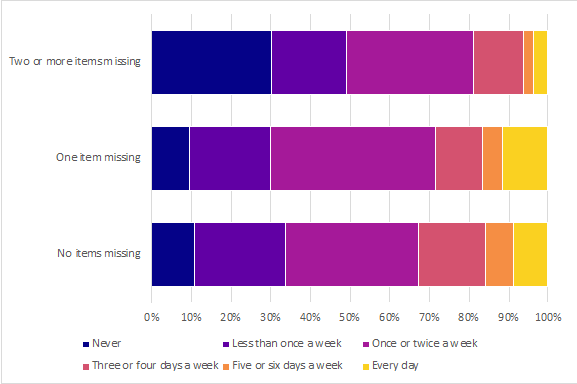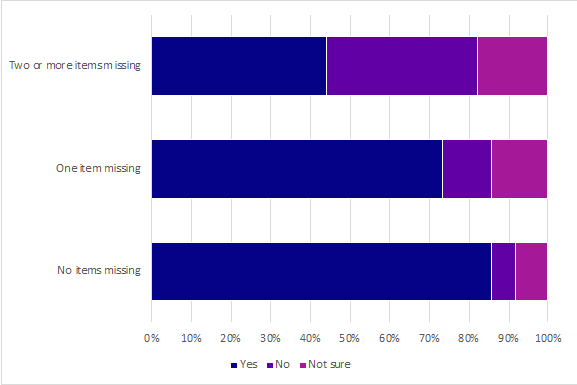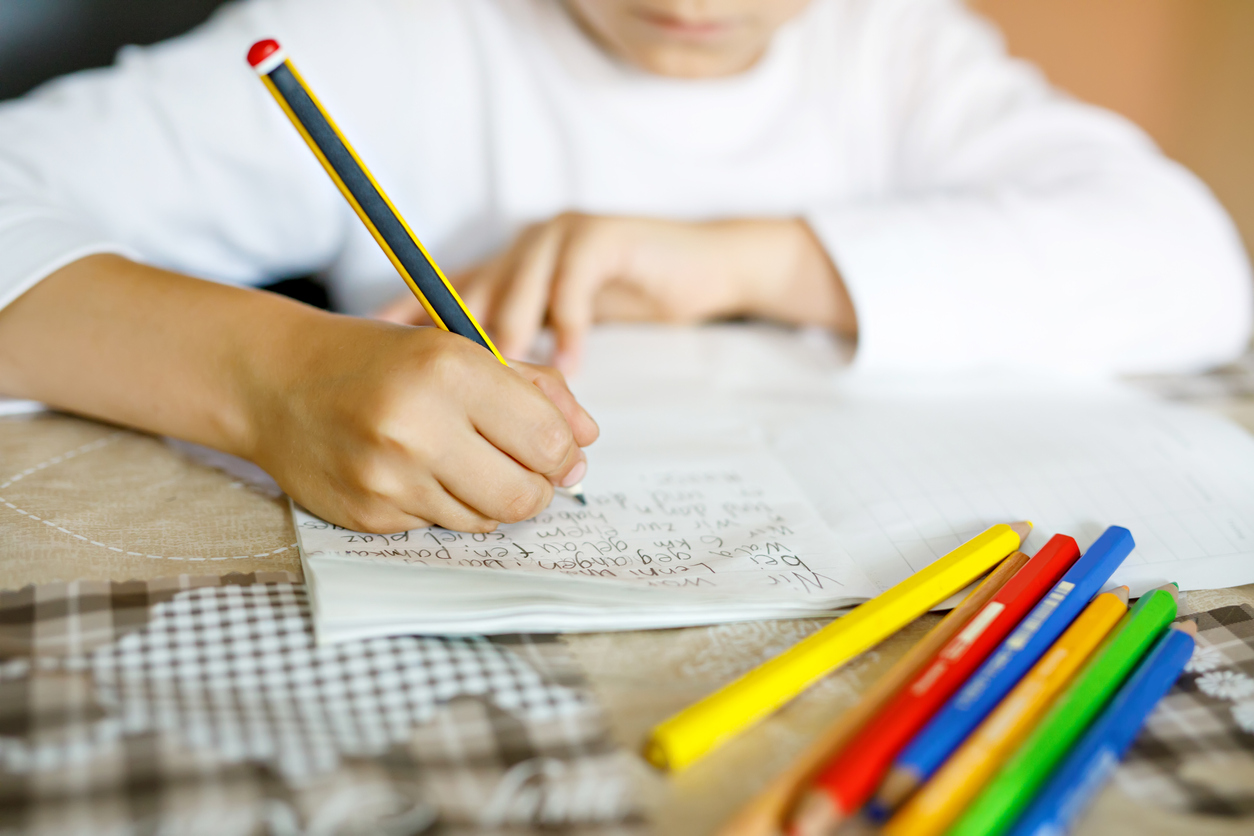As children across Wales and the rest of the UK have returned to school after an unprecedented length of time off, the focus on how to keep both children and staff safe has been of paramount importance for parents, teachers, and policy makers.
Attention must also be paid to the potentially unequal consequences that lockdowns – past, current and future – have on children from different backgrounds. As has been highlighted in a previous blog, school closures could have unequal implications to the progression, welfare and educational attainment of children and young people, with those from disadvantaged backgrounds experiencing the most detrimental effects.
Typically, we identify disadvantaged children through their eligibility for free school meals, household income measures and measures that look at the things people are able to afford.
The latter is often referred to as material deprivation and, at a household level, may include asking individuals whether they can afford essential white goods (such as a washing machine), services (like being able to heat their home in the winter), and activities which we consider important to a fulfilled life (like being able to go on a family holiday).
As part of the Children’s Worlds study, we asked over 2,600 children, aged between 9 and 14, from across Wales, about both the level of material deprivation they experienced and their home learning environment.
We used a child-specific version of a material deprivation measure which asked children about the things that they had. We asked them whether they had:
• Clothes in a good condition
• Enough money for school trips and activities
• Access to the internet at home
• Equipment needed for sports and hobbies
• Money to spend on themselves
• Two pairs of shoes in good condition
• A mobile phone
• Equipment needed for school
In Wales, 69.4% of children had none of these items missing, 21.2% had just one missing, and 9.4% had two or more items missing. We consider this last group to be materially deprived.
These levels of deprivation can be used to look at differences in home learning environments, including:
• whether or not children have somewhere appropriate to study at home,
• how much they usually study outside of school,
• and whether they attend any classes outside of school.
The findings show that children are less likely to do homework or study outside of school if they have higher levels of material deprivation.
As shown in Figure 1, the vast majority of children with no or lower levels of deprivation do some homework or study outside of school; over 90% report doing this at least once a week. Those with high levels of material deprivation are less likely to do any homework or study outside of school. Whilst 70% do some home study, 30% of those in this group report not doing any.
Interestingly, this appears not to be related to the amount of extracurricular classes being taken by the children, as these tend not to be significantly different between the groups.

Figure 1: Frequency of homework or studying outside of school, by material deprivation
Differences in the frequency of studying done outside of school may be partly due to whether or not children have a place where they can study at home. Our findings show that those experiencing higher levels of material deprivation are less likely to have a place to study at home. As shown in Figure 2, only 44% of them have somewhere to study, compared to 73% of those missing just one item, and to 86% of those missing no items.

Figure 2: Space to study at home, by material deprivation
The Welsh Government made strides to address digital exclusion through the allocation of funds to provide pupils with access to online learning materials and classes. However, without a suitable place to study at home, these may not have been enough to tackle the inequalities in home learning environments and to ensure that pupils in the most deprived households could participate during lockdown.
WISERD Education Data Lab are currently undertaking analysis of data from the Hwb digital learning platform, which may shed further light on differences in use and experience of these online resources by pupils across Wales.
About the WISERD Education Data Lab:
 WISERD Education Data Lab undertakes independent analysis of administrative education data, survey data and data linkage, alongside knowledge exchange and public dissemination of findings to inform national debate on some of the most contemporary and pressing educational issues facing Wales.
WISERD Education Data Lab undertakes independent analysis of administrative education data, survey data and data linkage, alongside knowledge exchange and public dissemination of findings to inform national debate on some of the most contemporary and pressing educational issues facing Wales.
WISERD Education Data Lab is funded by Welsh Government, Economic and Social Research Council (award: ES/012435/1) and Cardiff University.
Image credit: romrodinka via iStock.

